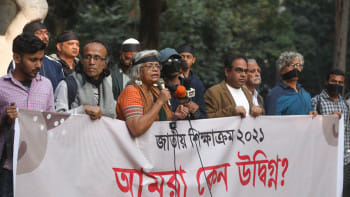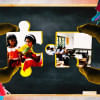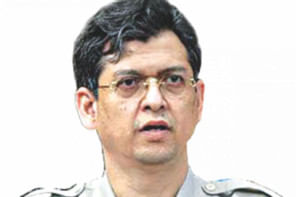All the ‘skill talk’ in university education

A banner at the entrance hall of my faculty building caught my attention. It advertised an initiative for students' "skill" development. I wondered who these people were, and what gave them the conviction that they could help develop students' "skills." I also wondered what the assumption here was. Gradually, it occurred to me that there were many such projects, often organised by NGOs and platforms on education, that emphasised on "skills" and "relevant" education. What skills? Who decides what is relevant for our education system? As education insiders, do we get a chance to share our views on what our education needs to look like?
The matter did not stop with one banner here or a roundtable discussion there where "experts" talked about the need for skills-based education that Bangladesh lacked. There were often some references to various ranking systems and how public universities in Bangladesh lagged. I also found students and past graduates expressing grievances that they suffer in their jobs because, at the university, they haven't been taught this or that skill. Suddenly, it seemed as though this skill thing was a big issue, and everybody talked about it! How to explain this change of understanding when it comes to university education, where this "skill" talk is so much at the centre?
With the arrival of the World-Bank-backed quality enhancement project by the University Grants Commission (UGC), a discursive shift has been taking place on what constitutes Bangladesh's public universities. On March 17, 2009, the World Bank approved a $81 million interest-free IDA credit to Bangladesh, designed to improve the "quality and relevance of teaching, learning and research" in the country's higher education institutions (my emphasis). The project, titled Higher Education Quality Enhancement Project (HEQEP) was deemed to support innovation as well as accountability in Bangladeshi universities, and enhance the technical and institutional capacity of the country's tertiary education sector. The project's main component has been to improve the "quality" and "relevance" of the teaching and research environment in higher education institutions.
It is worthwhile to note that around the time when this initiative was being undertaken, the World Bank was all in praise of Bangladesh's achievements in primary and secondary education—gross primary school enrolment rate around 90 percent, doubling of secondary enrolment since independence, gender parity, etc—but it did not concede "a similar progress" when it came to the country's higher education scene. On the contrary, it problematised Bangladesh's tertiary education enrolment rate as one of the lowest in the world, at six percent, facing significant "funding, quality, governance, and management" challenges.
With the World Bank-backed UGC HEQEP, coupled with other policy discourses on university education, it appears that a skills-based relevant education at the tertiary level is now the call of the hour. It gave rise to a new ritual of truth that favoured an education that talked in terms of productive use of manpower or saw university students as a product/raw material for the "competitive" world (read: neoliberal world). Some NGOs were seen to regularly organise policy discourse on what higher studies mean, how the university needs to be understood, or what to do with the large youth demography that the country was enjoying at the moment.
This shifting policy discourse poses a significant challenge in the way public universities have so far been imagined in Bangladesh as autonomous bodies receiving taxpayers' money. For the first time, faculties were required to write proposals for the department's infrastructure development. NGOs and private universities have been at the forefront of this discourse. It highlighted the problems the higher education institutions faced, making the suggestion that universities needed to emphasise relevant education. Curiously, all this coincides with a surge in the number of public universities in Bangladesh.
In the Global North, the neoliberal transformation of higher education took place in the 1980s. In the US, state-run universities were turned into state-assisted universities during the 1960s, giving rise to what is often known as academic capitalism. Neoliberal universities have been forced to ally with the industry. Particular disciplines having higher industry relevance received priority, hence the importance of biomedicine or computer science. Social sciences and arts saw a decline throughout this period. University research agendas were also increasingly driven by corporations and the market.
As it transpires, a similar transformation is taking place in Bangladesh. The complexities of how to imagine our universities need to be seen in the light of the construction of new truths about what a university is. The current skill talk is part of that discourse. Public university administrators have been largely unaware of the politics and unwarily jumped to the suggestion that the universities needed "improvement." The situation that our public university system faces today is more complex because, unlike yesteryears, when the university enjoyed some form of autonomy, it is under frequent intervention from the government, rendering its theoretical autonomy obsolete in practice. In such a crossroads of discourses, a dialogue among all the stakeholders is of utmost importance.
Dr Mahmudul H Sumon is professor of anthropology at Jahangirnagar University. He is the author of 'Ethnicity and Adivasi Identity in Bangladesh.'
Views expressed in this article are the author's own.
Follow The Daily Star Opinion on Facebook for the latest opinions, commentaries and analyses by experts and professionals. To contribute your article or letter to The Daily Star Opinion, see our guidelines for submission.

 For all latest news, follow The Daily Star's Google News channel.
For all latest news, follow The Daily Star's Google News channel. 










Comments